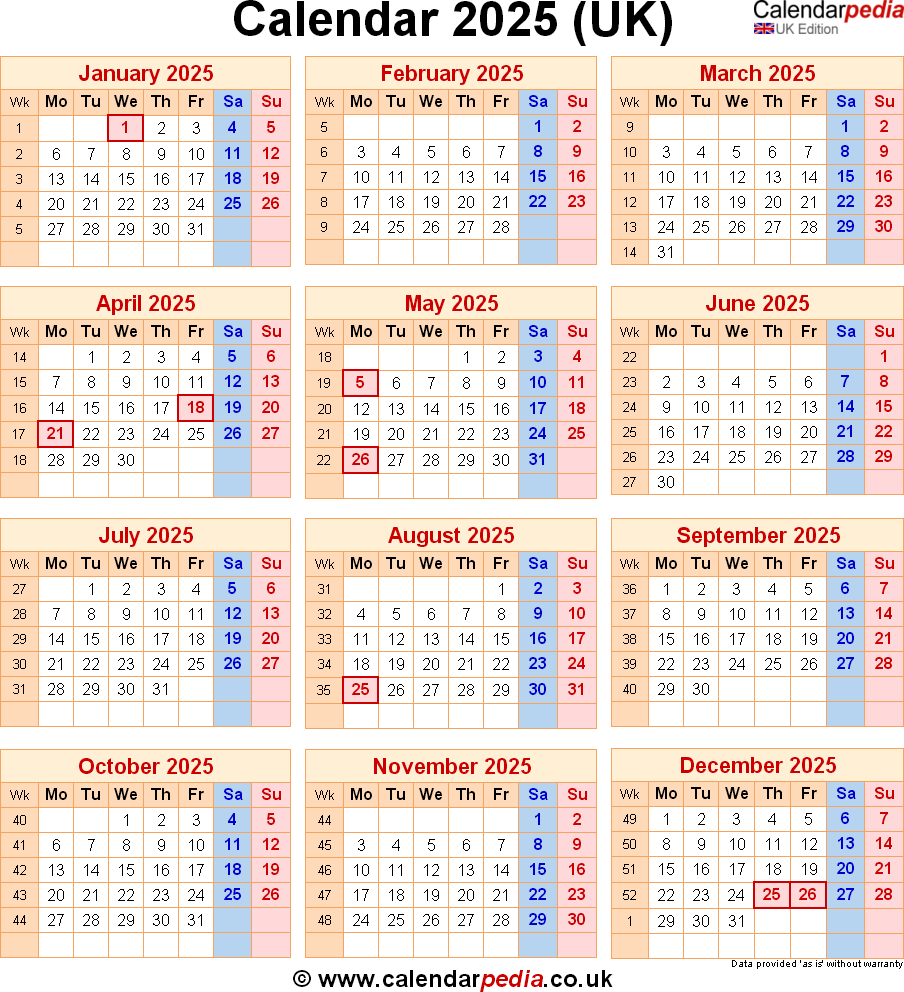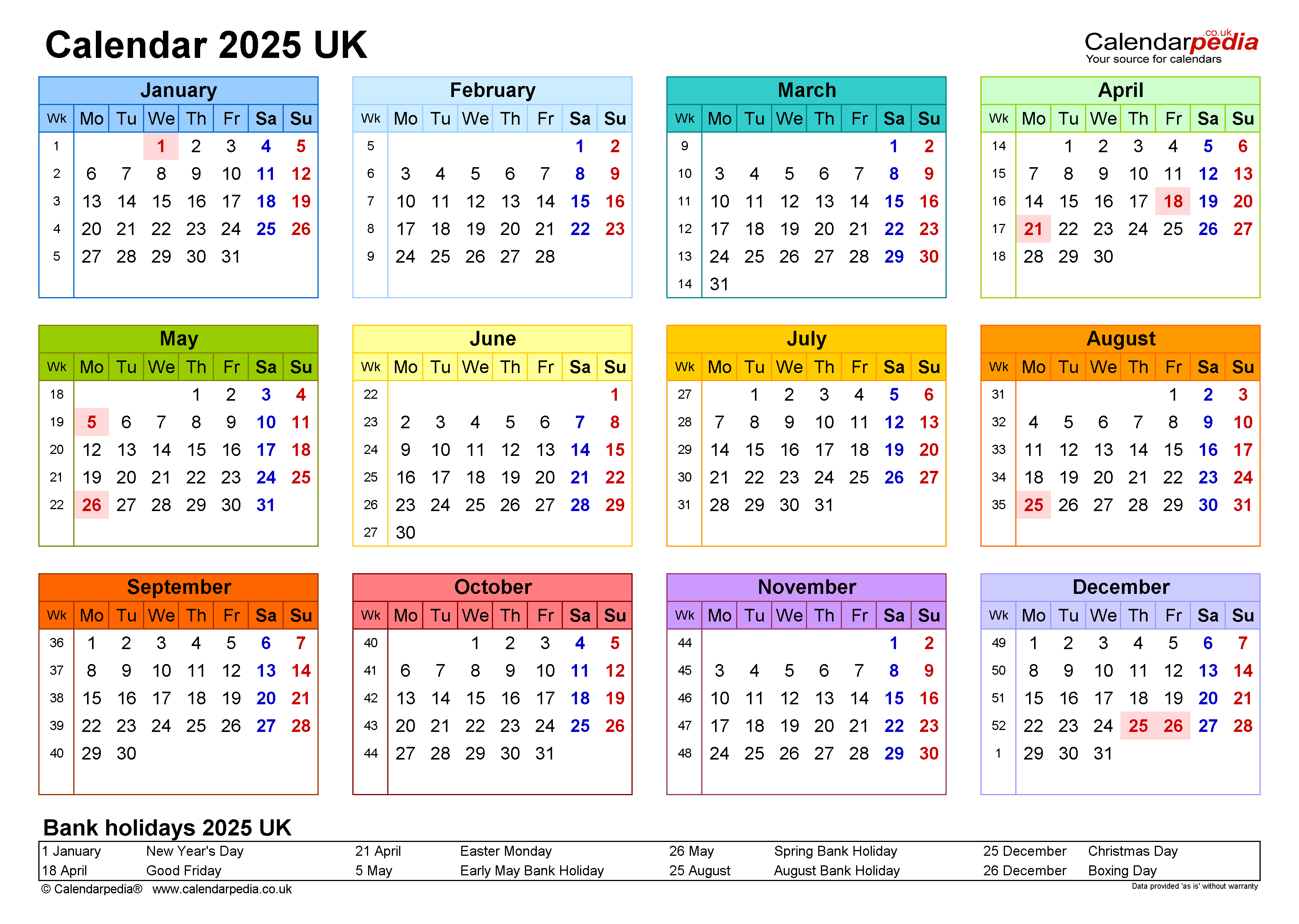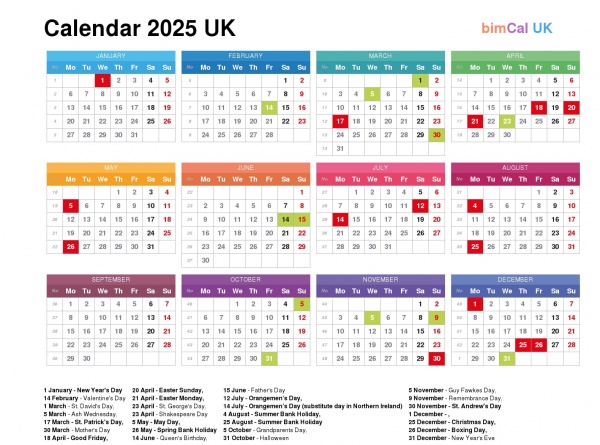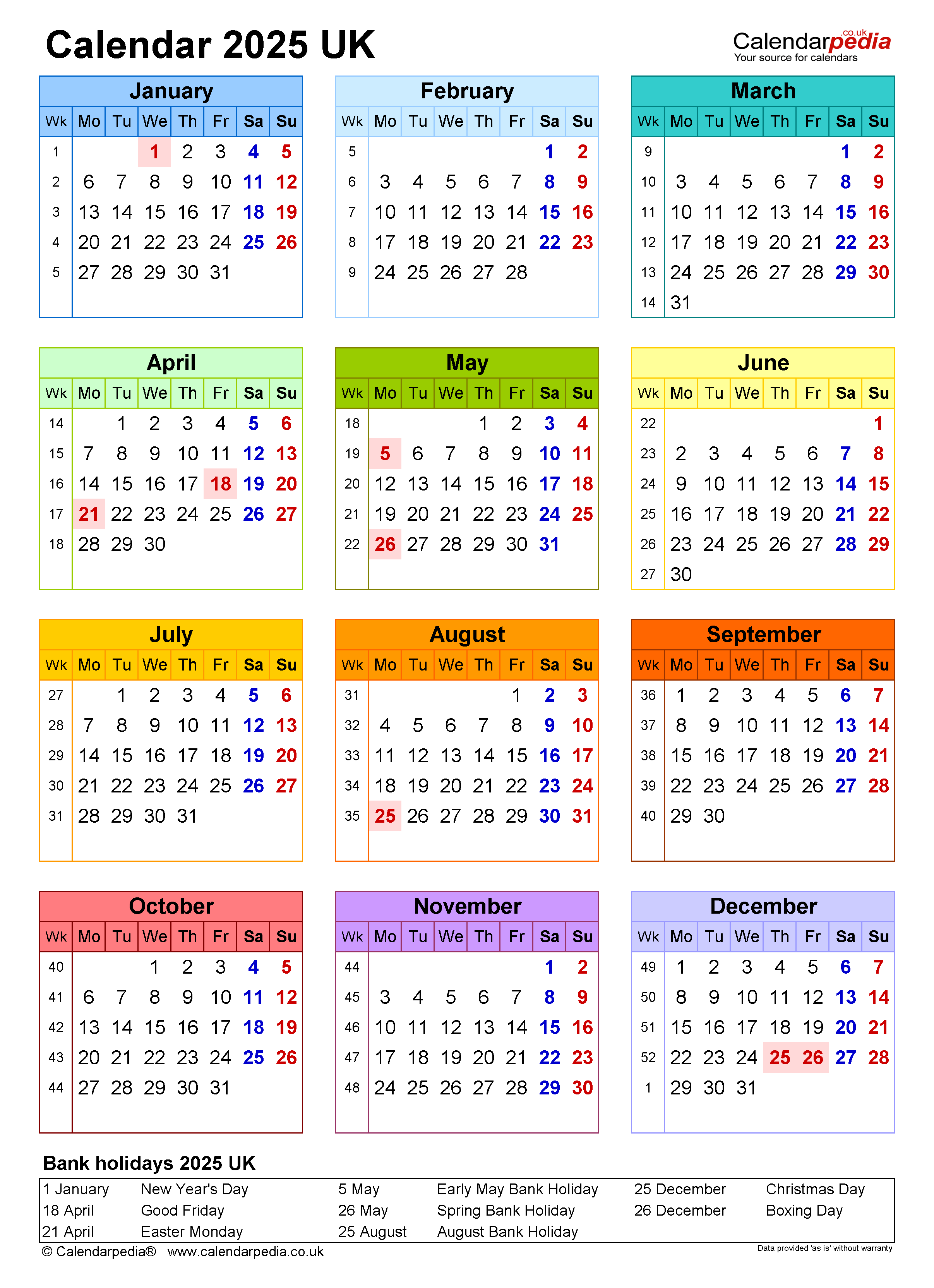2025 UK Holiday Calendar: A Comprehensive Guide
Related Articles: 2025 UK Holiday Calendar: A Comprehensive Guide
- 2025 Jewish Holiday Calendar: A Comprehensive Guide
- Printable Australian Calendar 2025: A Comprehensive Guide
- Office Depot Wall Calendar 2025: The Perfect Planning Companion For The Year Ahead
- 2025 Wall Calendar Printable: A Comprehensive Guide To Planning And Organization
- Chinese Gender Calendar 2025 To 2045: A Comprehensive Guide
Introduction
With enthusiasm, let’s navigate through the intriguing topic related to 2025 UK Holiday Calendar: A Comprehensive Guide. Let’s weave interesting information and offer fresh perspectives to the readers.
Table of Content
Video about 2025 UK Holiday Calendar: A Comprehensive Guide
2025 UK Holiday Calendar: A Comprehensive Guide

The United Kingdom, renowned for its rich history, cultural diversity, and vibrant traditions, observes a plethora of holidays throughout the year. These holidays range from national commemorations to religious festivals, each offering a unique opportunity to celebrate, relax, and reflect.
January
-
New Year’s Day (January 1st): The first day of the year marks the start of a new calendar cycle, celebrated with fireworks, parties, and resolutions.
-
Epiphany (January 6th): This Christian holiday commemorates the visit of the three wise men to the infant Jesus.
February
-
Valentine’s Day (February 14th): A day dedicated to love and romance, celebrated by exchanging cards, gifts, and chocolates.
-
Shrove Tuesday (February 17th): Also known as Pancake Day, this day precedes Ash Wednesday and is traditionally celebrated with the consumption of pancakes.
-
Ash Wednesday (February 18th): The first day of Lent, a 40-day period of fasting and penitence observed by some Christian denominations.
March
- Mother’s Day (March 23rd): A day to honor and celebrate mothers, often marked by gifts, flowers, and family gatherings.
April
-
April Fool’s Day (April 1st): A day of lighthearted pranks and jokes, where people attempt to fool others.
-
Good Friday (April 10th): A Christian holiday that commemorates the crucifixion of Jesus Christ.
-
Easter Sunday (April 12th): The most important Christian holiday, celebrating the resurrection of Jesus Christ.
-
Easter Monday (April 13th): A public holiday following Easter Sunday, often spent with family and friends.
May
-
May Day (May 1st): A traditional festival marking the arrival of spring and the celebration of workers’ rights.
-
Bank Holiday (May 4th): A public holiday in honor of the King’s coronation.
June
-
Trooping the Colour (June 13th): An annual parade held to celebrate the monarch’s official birthday.
-
Father’s Day (June 15th): A day to honor and celebrate fathers, similar to Mother’s Day.
-
Summer Solstice (June 21st): The longest day of the year in the Northern Hemisphere, marking the official start of summer.
July
- Wimbledon Championships (June 29th – July 12th): A prestigious tennis tournament held in London.
August
- August Bank Holiday (August 25th): A public holiday often used for summer vacations and festivals.
September
- Labor Day (September 1st): A day to recognize and celebrate the contributions of workers.
October
- Halloween (October 31st): A popular festival originating from Celtic traditions, celebrated with costumes, trick-or-treating, and pumpkin carving.
November
-
Remembrance Day (November 11th): A day to commemorate those who have died in military service.
-
Guy Fawkes Night (November 5th): Also known as Bonfire Night, a celebration that remembers the failed attempt to blow up the Houses of Parliament in 1605.
December
-
Christmas Day (December 25th): The most important Christian holiday, celebrating the birth of Jesus Christ.
-
Boxing Day (December 26th): A public holiday following Christmas Day, traditionally associated with gift-giving and sports.
-
New Year’s Eve (December 31st): The last day of the year, celebrated with parties, fireworks, and resolutions for the upcoming year.
Additional Notes:
- The dates of Easter and related holidays vary each year based on the lunar calendar.
- Some holidays, such as Bank Holidays, may fall on different days in different parts of the UK.
- Public holidays are typically observed with a day off from work and school.
Importance of Holidays
Holidays play a crucial role in British society, serving various purposes:
- Commemoration: They allow for the remembrance and celebration of important historical events, religious festivals, and cultural traditions.
- Relaxation and Recreation: Holidays provide opportunities for rest, leisure activities, and spending time with family and friends.
- Economic Stimulus: Many holidays boost the tourism industry and local businesses.
- Cultural Preservation: They help to maintain and pass on cultural traditions and values from one generation to the next.
- Social Cohesion: Holidays bring people together, fostering a sense of community and shared identity.
Conclusion
The UK holiday calendar offers a diverse and engaging array of celebrations throughout the year. These holidays provide opportunities for reflection, relaxation, cultural exploration, and social connection. By understanding the significance and dates of these holidays, individuals can plan their activities accordingly and fully appreciate the richness of British culture and traditions.








Closure
Thus, we hope this article has provided valuable insights into 2025 UK Holiday Calendar: A Comprehensive Guide. We hope you find this article informative and beneficial. See you in our next article!